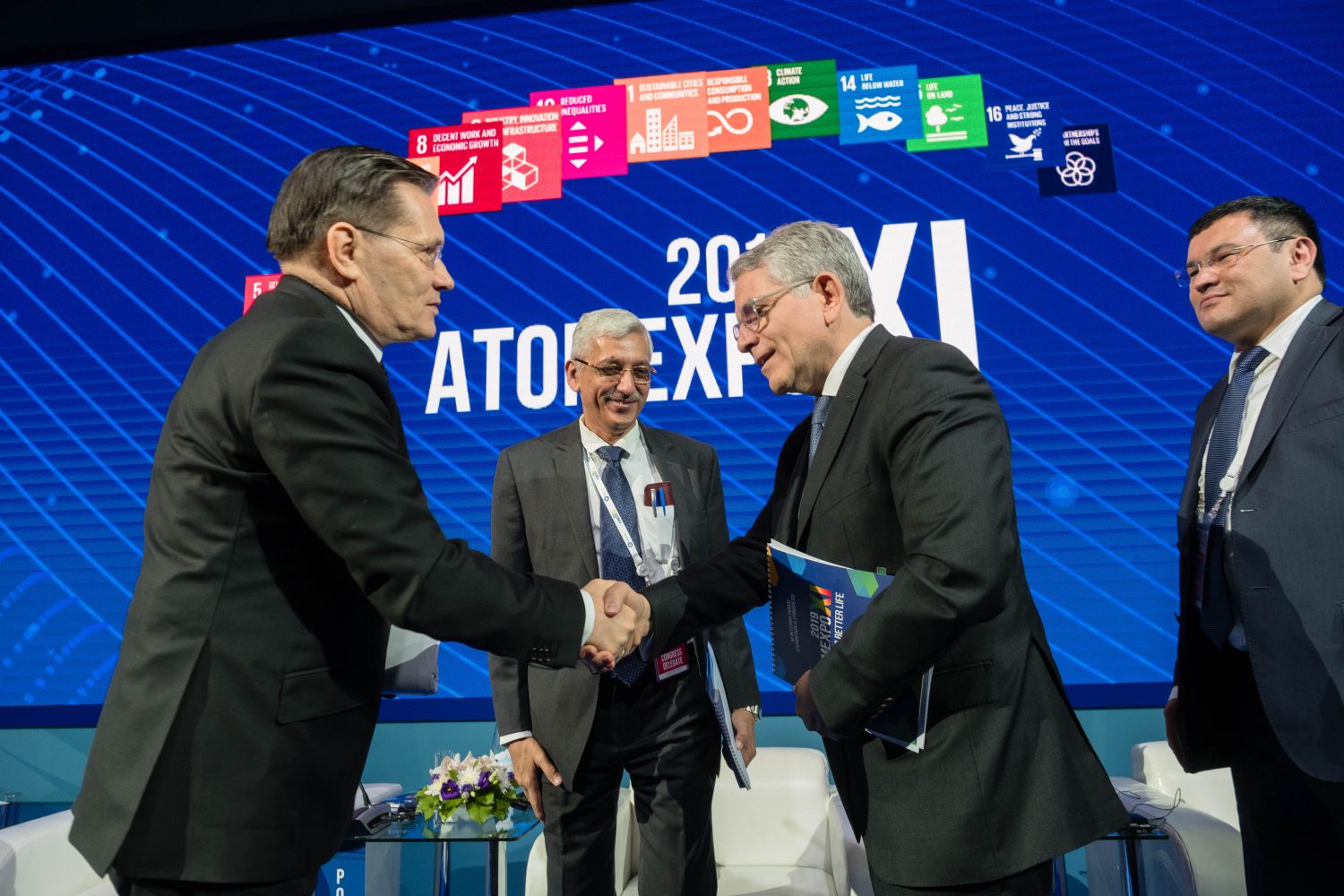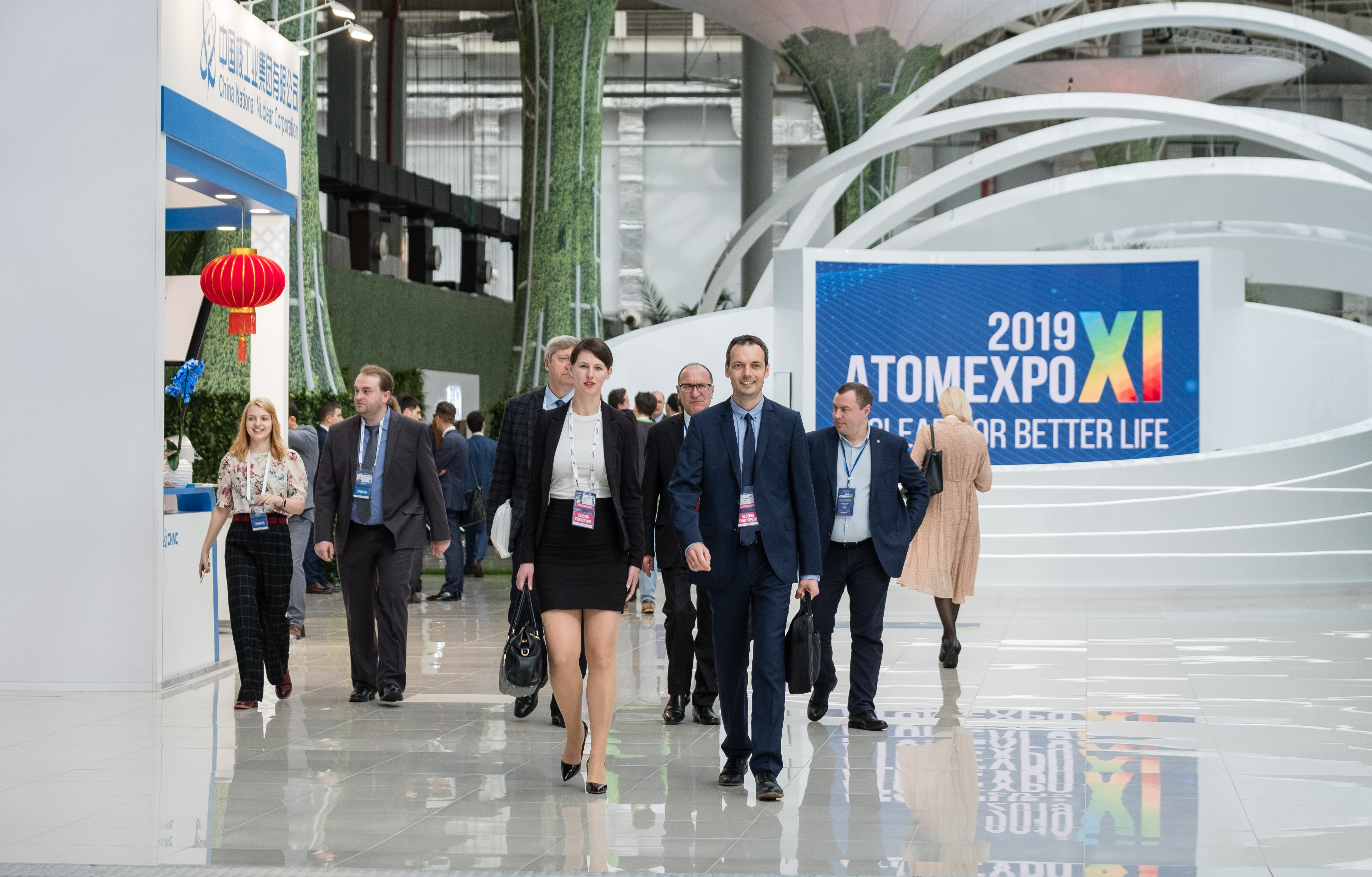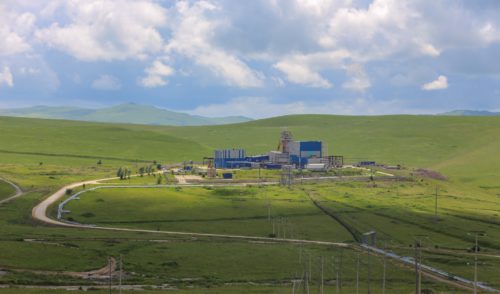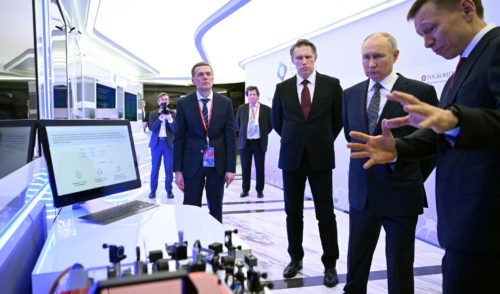
ATOMEXPO Highlights
back to contentsATOMEXPO has transformed itself from a national industry event attended by foreign colleagues into a global discussion platform, Rosatom Director General Alexey Likhachev said. This was the reason why this year’s business agenda was drawn up by an international program committee that comprised William Magwood, Director General of the OECD NEA, Luis Echávarri, former Director General of OECD NEA, Agneta Rising, Director General of the World Nuclear Association, Jacques Regaldo, Chairman of the World Association of Nuclear Operators, and others.
The plenary session of the Forum centered on the use of nuclear technology for a better future and achievement of the 17 Sustainable Development Goals set by the UN in 2015. Sergey Kirienko, First Deputy Chief of Staff of the Presidential Administration of Russia and Chairman of the Supervisory Board of Rosatom, said, “The UN Sustainability Development Goals aim at solving two global tasks, eradicating poverty and preserving the environment. Neither the first, nor the second problem will be solved without sufficient energy, and nuclear can play a key role here. Civil nuclear power is environmentally safe and reliable. Besides, it contributes to the development of science, education, medicine and agriculture and helps to overcome the shortage of drinking water. And I cannot but mention the impetus that construction of a nuclear power plant gives to the national economy.” According to Sergey Kirienko, 10 GW of new capacity was commissioned around the world in 2018, and 5 reactor units resumed their operation in Japan, thus breaking a 30-year record. Rosatom and its partners accounted for 40% of the new capacity.
Thomas Gerassimos, Deputy-Director General for Energy of the European Commission, said that Europe committed itself to reducing carbon dioxide emissions down by 35-45% until 2030, but the goal could not be possibly achieved without nuclear power. Alexey Likhachev also drew attention of the audience to the role of nuclear in curbing CO2 emissions and noted, “We do not stand still and keep working on ‘closing’ the nuclear fuel cycle, improving safety of nuclear power plants, and recycling nuclear materials. This will make nuclear generation even safer for the environment.”
Representatives of newcomer countries, Uzbekistan and Zambia, also took part in the plenary session. Zhurabek Mirzamakhmudov, Uzbekistan’s First Deputy Minister of Energy and Head of the Agency for the Development of Nuclear Energy (Uzatom), said that the country’s decision to embark on a civil nuclear energy program was purely economic. He added that country did not plan to give up on gas or renewables, but the population of Uzbekistan is growing fast, and nuclear energy is essential to satisfy the energy demand. Civil nuclear energy is a multi-year guarantee of secure energy supply and development of related industries, science and talents.
Roland Msiska, Head of the Zambia Atomic Agency (ZAMATOM), told the audience that the country had faced a severe drought in 2015, and hydropower plants generating 40% of power in Zambia could not produce enough electricity. The country’s gross domestic product fell by 40% that year. According to Msiska that was a strong blow for country’s economy. Zambia had to change its energy mix and decided to begin with a research reactor and then building a commercial nuclear power plant in 10 or 15 years. Medicine is another area that cannot do without nuclear technology. Besides, Zambia will need isotopes and irradiation solutions for its produce.
Road to a nuclear power plant in Ethiopia
Russia and Ethiopia had approved a three-year roadmap for cooperation in design and development of a nuclear power plant and a nuclear science and technology center, staff training, and building a positive image of nuclear energy in the country. The document was signed by Alexey Likhachev, Director General of Rosatom, and Getahun Mekuria Kuma, Minister of Innovation and Technology of Ethiopia.
Our readers might remember that Rosatom and the Ethiopian Ministry of Innovation and Technology signed a memorandum of cooperation in civil nuclear technology on June 19, 2017. The memorandum established a legal framework for the joint cooperation between a number of research and technology areas, such as nuclear infrastructure development, nuclear energy awareness programs, irradiation technology in industry, agriculture and medicine, and staff training.
Staff for Cuba
Rosatom and the Cuban Ministry of Science, Technology and Environment signed a memorandum of cooperation on staff training for the nuclear industry. The memorandum was signed by Nikolai Spasskiy, Rosatom’s Deputy Director General for International Relations, and Fernando Gonzalez Bermudez, First Deputy Minister of Science, Technology and Environment of Cuba.
The document provides for the development of nuclear staff training programs, academic and professional exchange, development of textbooks and technology manuals, short-term internships, summer schools and seminars.
A win-win in Serbia
Russia and Serbia signed two memorandums of understanding. The first one covers staff training, while the other establishes principles of building public support for nuclear energy. The documents were signed by Rosatom’s Director General Alexey Likhachev and Serbian Minister of Innovations and Technology Nenad Popović. He said that it was an opportunity for Serbia to tap into to the Russian professional expertise in nuclear technology and promote academic research in Serbia together. It is planned to establish a nuclear science and innovative technology center in association with Rosatom. This will be the most advanced nuclear center in Southeast Europe and an educational institution for nuclear professionals from around the world.
As part of human resource development, the two countries will introduce staff training programs, organize academic exchange, train lecturers for Serbian students, etc. The parties plan to launch a number of nuclear awareness raising initiatives, organize international conferences, exhibitions, social and educational projects, and many others in order to build public awareness of nuclear technology.
As you might remember, Russia and Serbia signed a set of agreements on January 17, 2019 aimed at establishing a legal framework for joint civil nuclear programs and initiatives. The documents include an agreement on cooperation in proven and innovative nuclear energy technologies and a declaration of strategic partnership to build a nuclear science, technology and innovation center.
Nuclear Science and Technology Center in Congo
Nikolai Spasskiy, Deputy Director General for International Relations at Rosatom, and David Maduka, Congo Ambassador to Russia, signed a joint roadmap document. Within the next two years, the parties will consider an opportunity to build a nuclear science and technology center and lay a foundation for staff training.




